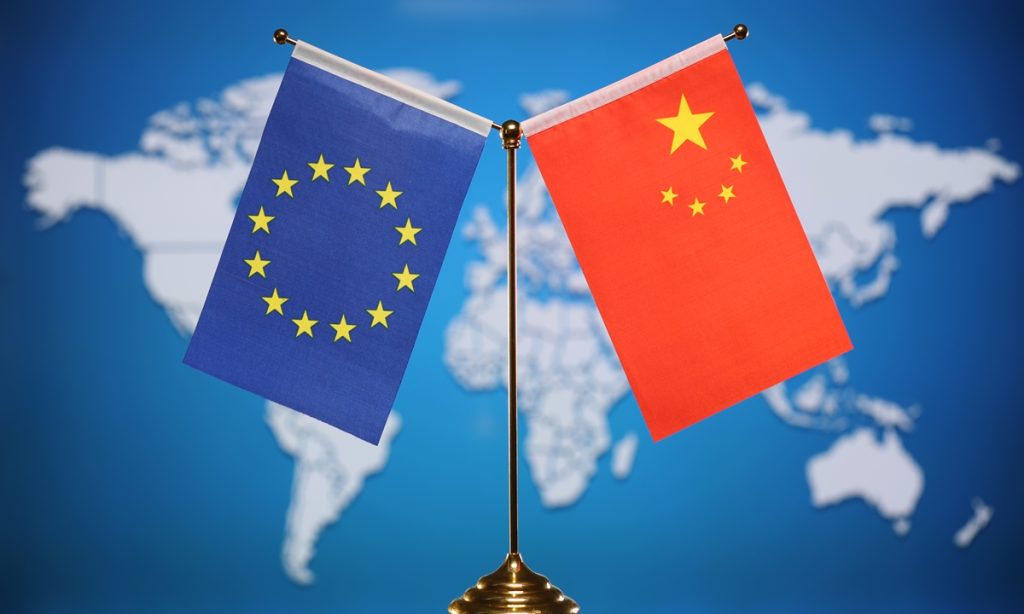Chinese FM to visit Europe for new round of strategic dialogue

The Chinese Foreign Ministry announced on Friday that member of the Political Bureau of the CPC Central Committee and Minister of Foreign Affairs Wang Yi will travel to Europe from June 30 to July 6, to attend the new round of China-EU High-level Strategic Dialogue as well as visit Germany and France for a series of dialogues. With unilateralism and protectionism on the rise, it is necessary for China and the EU to strengthen communication, safeguard multilateralism, and act firmly as anchors of stability and constructive forces in a volatile world, the ministry said.
At the invitation of High Representative for Foreign Affairs and Security Policy of the EU Kaja Kallas, Federal Foreign Minister of Germany Johann Wadephul, and Minister for Europe and Foreign Affairs of France Jean-Noël Barrot, from June 30 to July 6, Wang Yi will visit the EU headquarters and hold the 13th round of China-EU High-level Strategic Dialogue, visit Germany and hold the eighth round of China-Germany Strategic Dialogue on Diplomacy and Security, and visit France for talks with the French Foreign Minister and the meeting of the China-France high-level dialogue mechanism on people-to-people exchanges.
While in Brussels, Wang Yi will meet and have talks with Belgium's Prime Minister Bart De Wever and Deputy Prime Minister and Foreign Minister Maxime Prévot respectively, per the Chinese Foreign Ministry.
Elaborating on the expectations for this trip, ministry spokesperson Guo Jiakun said at Friday's press briefing that this year marks the 50th anniversary of China-EU diplomatic ties. Bilateral relations face important opportunities of development. As unprecedented global changes unfold at a faster pace and unilateralism, protectionism and bullying practices are on the rise, it is necessary for China and the EU, two major forces, markets and civilizations in the world, to strengthen strategic communication, conduct coordination and cooperation, jointly keep the world peaceful and stable, safeguard multilateralism, free trade, international rules, fairness and justice, and act firmly as anchors of stability and constructive forces in a volatile world.
Amid an increasingly complex geopolitical landscape, the EU is facing mounting internal divisions over its China policy, with intense debates and some voices taking a relatively negative tone, Cui Hongjian, director of the Department of European Studies, China Institute of International Studies, told the Global Times on Friday.
By engaging with key EU member states such as Germany, France, and Belgium, this visit seeks to align positions with the partners whose stances will significantly shape the bloc's overall approach toward China, and lay solid groundwork for the upcoming China-EU leaders' interaction, Cui said.
Wang had a group meeting in Beijing with diplomatic envoys from the EU and its member states to China on Wednesday, where he put forward three suggestions for the future development of China-EU relations.
The first is to uphold mutual respect, in particular, Wang expressed the hope that the EU will firmly uphold the one-China principle and oppose all forms of "Taiwan independence." Second, the two sides should stay committed to the positioning of their partnership and third, jointly uphold multilateralism.
"The development of China-EU relations over the past 50 years has proved that China and the EU are partners, not rivals, still less enemies," Wang noted.
"Jilted, betrayed, dumped, or defiant. It's hard to describe the European Union after relentless attacks from its once-dependable ally, the United States," the AP reported on Thursday. The threat from Washington against Greenland, its sweeping tariff plans and courtship of Moscow have firmed up some European leaders' vows to reduce their reliance on America, the report titled "Reeling from Trump rebukes, Europe weighs deeper ties with China" said.
Recent shifts in US dynamics have introduced new variables into China-EU relations, Cui said.
"With the US now bringing the most uncertainties to Europe, EU's desire to strengthen cooperation with China is growing - however, the situation remains complex. While some politicians insist Europe should prioritize ties with Washington, this stance doesn't reflect the continent's overall strategic needs. What may appear as hesitation could often be tactical positioning rather than policy shifts, Cui said.
The EU-China economic ties are hefty: bilateral trade is estimated at 2.3 billion euros ($2.7 billion) per day. China is the EU's second largest trading partner in goods, and both believe it is in their interest to keep their trade ties stable for the sake of the global economy, and they share certain climate goals, AP reported.